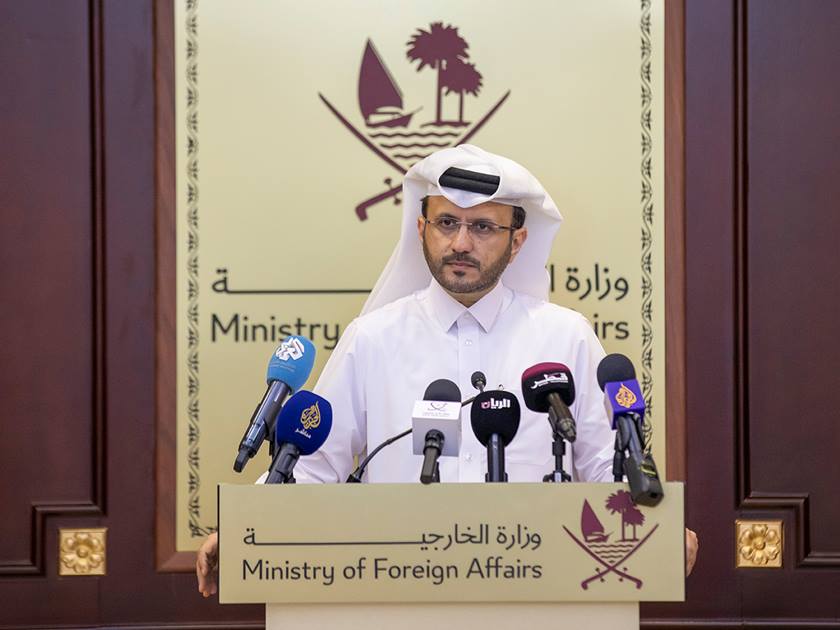The Gulf state previously expressed its support for the Black Sea deal.
Qatar has dismissed “inaccurate” claims over its reported involvement in a new grain export deal with Russia and Turkiye on Tuesday, maintaining Doha’s support for the revival of the landmark Black Sea agreement.
Speaking at a weekly press briefing in Doha, the Gulf state’s Foreign Ministry Spokesperson Dr. Majed Al Ansari denied “the existence of a Qatari role” in a new grain agreement, Al Araby Al Jadeed reported.
“What is being circulated in this regard is inaccurate,” he said, adding that “Qatar supports a return to the previous grain agreement.”
The official’s remarks came after reports pointed to a new role by the Gulf state to export grains to African countries following the expiry of the Turkiye-mediated Black Sea deal in July.
Turkish President Recep Tayyip Erdogan travelled to Russia on Monday, where he met with Russian President Vladimir Putin in an effort to extend the vital agreement.
Speaking at a press conference following the three-hour meeting, President Putin said his country is ready to join efforts with Qatar and Turkiye to transport grains to six African countries under a new mechanism.
The Russian leader noted that he is considering an “additional mechanism” with Doha and Ankara that does not replace the Black Sea deal, per a report by Qatar’s news agency (QNA).
The previous landmark deal provided a safe corridor for much-needed grain shipments from three key Ukrainian Black Sea ports after deliveries were disrupted by the ongoing war between Russia and Ukraine.
Despite the lack of hope for the revival of the agreement, Erdogan appeared to be hopeful in reaching a breakthrough during his meeting with his Russian counterpart.
“We believe that we will reach a solution that will meet the expectations in a short time,” Erdogan told the press in Russia.
A landmark deal
Turkiye and the United Nations brokered the Black Sea grain deal in July last year, months after the start of the Russian war in Ukraine. Turkish efforts later led to the extension of the crucial deal in May for an additional two months.
At the time, Qatar welcomed the extension of the deal and reiterated its “support for all international efforts aimed at finding a peaceful solution to the Russian-Ukrainian crisis.”
Under the deal, signatories agreed to set up a Joint Coordination Centre in Istanbul to oversee the implementation of the agreement.
The closure of the blocked Black Sea routes heavily affected countries around the world that heavily depended on Russian and Ukrainian grains, resulting in a spike in global food prices.
At least 30.3 million tonnes of grain and foodstuffs were exported from Ukraine a year into the deal. The exports include 625,000 tonnes of aid to Afghanistan, Kenya, Somalia, and Yemen.
Putin has come under a barrage of criticism by the West in recent months for his refusal to renew the agreement. German Foreign Minister Annalena Baerbock recently said that the Russian president’s “game with the grain agreement is cynical.”
“It’s only because of Putin that the freighters don’t have free passage again,” she told reporters in Germany, as quoted by Associated Press (AP).
Grain prices skyrocketed in the aftermath of the expiration date this year, heavily impacting developing nations.
However, last month, Putin said he would provide free grain supplies to six African countries—Burkina Faso, Zimbabwe, Mali, Somalia, Eritrea, and the Central African Republic, the AP reported.
The war between Russia and Ukraine has dragged on for more than a year despite numerous mediation efforts led by Turkiye.
Between 24 February 2022 and 13 August 2023, the Russian invasion resulted in at least 26,384 civilian casualties, with 9,444 killed and 16,940 injured, per figures published by the UN last month.







